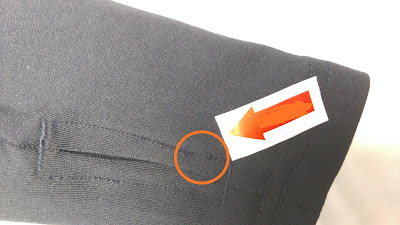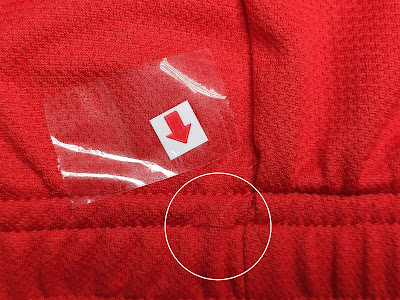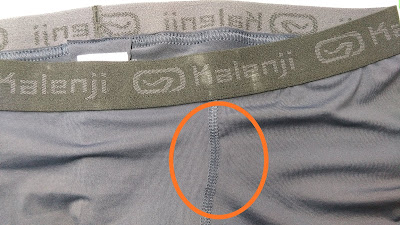Introduction: Sewing is the most important part to shape a garment. The different parts of garments join together by sewing in the garments sewing section. But it is more challenging to produce a quality-full garment. To produce a quality-full garment, defects are the only things to disturb our production.
So, when we produce garments, it needs to ensure that our garments are defect-free as well as very good quality-full.
In this post, I am going to discuss some defects that gradually happen during sewing time;
1. Broken Stitch: During sewing time, threads are broken due to some machine setup problem and it calls Broken Stitch.
 |
| Broken Stitch |
| Name of Defect |
Root Cause |
Corrective Action Plan |
Preventive Action Plan |
| Broken Stitch |
Due to Trimming problem |
Operator should carefull about Trimming |
We Train up our operator about proper Trimming |
| Due to thread stability problem |
we have to carefully check thread stability |
Alert to be check Thread Stability |
Table - 1: Broken Stitch Root Causes, CAP, And PAP.
2. Skip Stitch: Due to improper needle and looper action, sometimes looper threads missed in stitch. This stitch is known as skip stitch.
 |
| Skip Stitch |
| Name of Defect |
Root Cause |
Corrective Action Plan |
Preventive Action Plan |
| Skip Stitch |
Needle Probelm |
Change Needle Ramdomly After 2 Hrs |
Train Up the Operator |
| Due to improper machine adjust problem |
Machanic properly setup to avoid skip stitch |
We aware our operator about how to avoid skip stitch |
Table - 2: Skip Stitch Root Causes, CAP, And PAP.
3. Uneven / Wavy Stitch: When the stitch line is not straight or properly curve, it calls uneven/wavy stitch.
 |
| Uneven/Wavy Stitch |
| Name of Defect |
Root Cause |
Corrective Action Plan |
Preventive Action Plan |
| Uneven / Wavy Stitch |
Operator careless sewing |
Operator should carefull about thier sewing operation |
We should train up our operator about proper sewing process |
Table - 3: Uneven/wavy stitch Root Causes, CAP, And PAP.
You may read: Sewing Stitch Classification | Stitch classification according to British Standard 3870:1991 & ISO Standard 4915:1991
4. Cracked Stitch: Sometimes stitches are broken due to less elasticity in the seam line. This broken stitch calls a cracked stitch.
 |
| Cracked Stitch |
| Name of Defect |
Root Cause |
Corrective Action Plan |
Preventive Action Plan |
| Cracked Stitch |
Improper machine adjustment |
Stop the machine & ensure proper machine adjustment |
Mechanics must check the machine condition before strating sewing |
| Due to less thread stability |
Operator have to carefully check thread stability after sewing by stressing seam line |
We should train up our operator how to check seam elasticity |
Table - 4: Cracked stitch Root Causes, CAP, And PAP.
5. Open Seam: When two parts of the fabric are not sewing properly, an Open seam has occurred.
 |
| Open Seam |
| Name of Defect |
Root Cause |
Corrective Action Plan |
Preventive Action Plan |
| Open Seam |
Operator Handling Problem |
Operator shall be work carefully |
We are training our operator about how to work in a proper way |
| Operator didn't follow M/C guide in properly |
they will be follow the M/C guide properly and they ensure proper seam line |
We are training our operator about how to proper use of machine guide |
Table - 5: Open seam Root Causes, CAP, And PAP.
Defects are very common in the garments sector. You can't remove the defect permanently, but we can reduce these defects by taking some action. In every section and situation, you face new defects or problems, and as a quality engineer, you have to prevent all of these with technically.
Thank you for your patient reading. Is the article helpful? Please, share this article with others.





 Reviewed by Mustaqim-Ul-Alam
on
December 12, 2019
Rating:
Reviewed by Mustaqim-Ul-Alam
on
December 12, 2019
Rating:
 Reviewed by Mustaqim-Ul-Alam
on
December 12, 2019
Rating:
Reviewed by Mustaqim-Ul-Alam
on
December 12, 2019
Rating:






